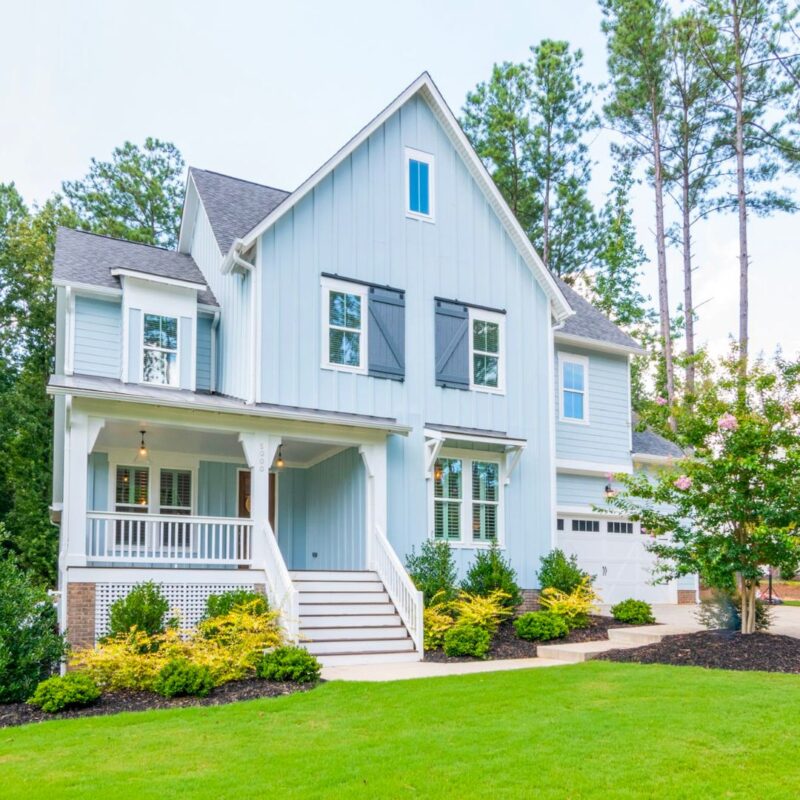Buying your first single-family home is exciting and a big deal. No more parking battles over limited spaces or noises coming from the apartment upstairs. You may be prepared to take on homeowner tasks such as mowing the lawn and taking your trash to the curb, but here are a few things you may not know. Read on to prepare yourself for tips and tricks as you’re preparing to buy a home in Essex County.

1. You’re probably going to need a new car and/or a second car.
That city beater you’ve been driving around has served you well but it may be time to retire her. With the serious hills we have in the area, many small cars won’t be safe enough for you to drive anymore, especially when it snows and the plows aren’t out yet. When budgeting for a house, don’t forget to add in the expense of a second or replacement car to tackle inclement weather and steep roads. Also, keep in mind that the car purchase should come after the home purchase so it won’t affect your ability to get a mortgage.
2. School buses are not always available in some towns.
If you have kids or are planning to, you’re probably expecting to bring them to the bus stop every morning before work and pick them up at the bus stop after school but that isn’t the case in many suburban towns.
Parents in towns like Cedar Grove, which requires you to live a certain distance from the school to use the bus system, and Summit (Union County), which does not have a public-school bus system, are responsible for pick-up and drop-off. Schools are commonly on busy roads and, depending on where you live, your child may not be able to safely walk to school. So, break out the minivan and get ready for carpool.
Read More: The Montclair Girl’s Real Estate Directory
3. Problems with your house will never stop (but it’s still worth buying one!)
From leaking pipes to faulty appliances to full-blown heating failure, all problems with your house must be handled by you. There is no landlord or super to call so it’s important to have all the necessary numbers on hand in case of an emergency.
Here are some contacts to keep handy:
- For gas-related issues, have the number of a trustworthy plumber that works with gas. Save the emergency number for your local gas provider as gas can become dangerous if not handled properly. That plumber can also come help with pipe leaks, backed-up toilets, and other plumbing-related issues.
- HVAC repair person for when your very convenient central air system decides to kick the bucket on the hottest day in August.
- Electrician to help you when you inevitably blow a fuse plugging too many things into one outlet. It’s ok–it happens!
- Appliance repairman because living without a refrigerator is never fun.
- If you have a basement, a company that deals with flooding in case your sump pump backs up during a major rainstorm and you flood.
4. With that in mind, here are some other items you may not realize need regular maintenance.
You’ll need to regularly service a lot of things in the home to prevent major issues including-but-not-limited-to:
- Rain gutters: when these fill up with leaves, it causes water to go into places it’s not supposed to and cause flooding inside the home. Make sure you or a gutter-cleaning company regularly clear them.
- HVAC vents and filters: These systems make heating and cooling your home a breeze but have a company come in to vacuum out the dust that accumulates in the ductwork. In addition, there is a filter in your system that you need to replace at least quarterly.
- Dryer vent/line: Dryer fires are very scary and can cause major damage to a home. Make sure your dryer vent and dryer line are cleaned out from time to time.
- Extermination: Hiring an exterminator for regular treatments for cave crickets, wasps, termites, ants, or even mice will keep the pest headaches away and help to prevent any damage to your home.
5. Ever heard of septic tanks + well water systems?
Although somewhat uncommon in Essex County, some houses are not hooked up to public water and sewer and instead have septic tanks and well water systems. This means that your sewage collects in a giant, underground container in your yard.
Septic tanks need to have regular maintenance so they do not back up and also need to be replaced from time to time. If your home has one of these, read up on their care so you don’t get yourself into a situation like in Meet the Parents. If you have well water, you should regularly test your water to make sure that it remains potable.
6. Your favorite delivery apps’ options are extremely limited in some towns.
One of the perks of living in a city is the easy access to just about everything you can think of and your ability to get it delivered to your door in 30 minutes. Once you make the pilgrimage to the burbs, that luxury disappears depending on what town you live in.
If you are in or around Montclair, not to worry, our Uber Eats and Door Dash are full of options but, in other towns, there are limited options, the restaurants close early, and delivery times are quite long.
7. Neighborly issues still arise even when you don’t share walls.
Sharing walls with your neighbors is bound to cause issues. From loud parties to barking dogs, noise complaints create a lot of tension between building mates. Unfortunately, even when you don’t share walls anymore, you can still have many issues with your neighbors.
For the most part, you will have a great experience with your neighbors and even become friends with them. In other instances, you’re going to have issues. The best way to handle them is the same as back in your apartment: apologies to defuse, turn down the volume, and close your door. In other instances, you may need to involve the town and/or an attorney.
To help relationships start off strong, introduce yourself to your neighbors as soon as you move in, get their phone numbers, and give them yours. This way, your relationship starts off on a good foot and there is less of a chance of issue when you decide to put in a pool and your neighbor doesn’t want you to.
8. You still have to dig your way out of snow walls.
You know when it snows in the city and your car gets plowed in and you have to go dig it out? In the suburbs, your car isn’t the one necessarily getting plowed in but your driveway sure will. Blocked by a wall that rivals the thickness and sometimes height of The Great Wall, make sure you have a heavy-duty shovel (or two because they break!), a snowplow, or better yet a snow-plowing service ready for when your first blizzards hit.
See More: A Look Inside This Interior Designer’s Hoboken Home
9. So much more cleaning!
Cleaning an apartment is typically an easy afternoon or Sunday project. In a house with multiple floors, the cleaning never ends. Make yourself a chore schedule and do one or two rooms every single day to keep the mess at bay. If you save it all for 1 time, you’ll be very sorry.
Becoming a homeowner comes with a lot of work but it’s worth it. Not paying rent, being able to paint the walls whatever color you want, and hanging all the pictures your heart desires will always keep the pros higher than the cons. Preparation and regular upkeep is the key to making sure your home stays the way you want it for many years to come.
10. You’re going to need a ton of furniture!
When you upgrade from an apartment or townhome, the amount of furniture needed to fill your single-family home can become overwhelming. But, don’t feel pressure to fill every room on day one. Prior to move-in, decide which rooms are a priority and which can be done over time. You may need your bedroom and office immediately, but probably don’t need to immediately furnish extra guest rooms.
In addition, check out antique stores, garage sales, Facebook Marketplace, and other secondhand options. It can help you save money and there are some great, unique finds that will make your home stand out. You’ve waited a long time for the perfect home, take some more time to really make it “you.”
Becoming a homeowner comes with a lot of work but it’s worth it. Not paying rent, being able to paint the walls whatever color you want, and hanging all the pictures your heart desires will always keep the pros higher than the cons. Preparation and regular upkeep is the key to making sure your home stays the way you want it for many years to come.






